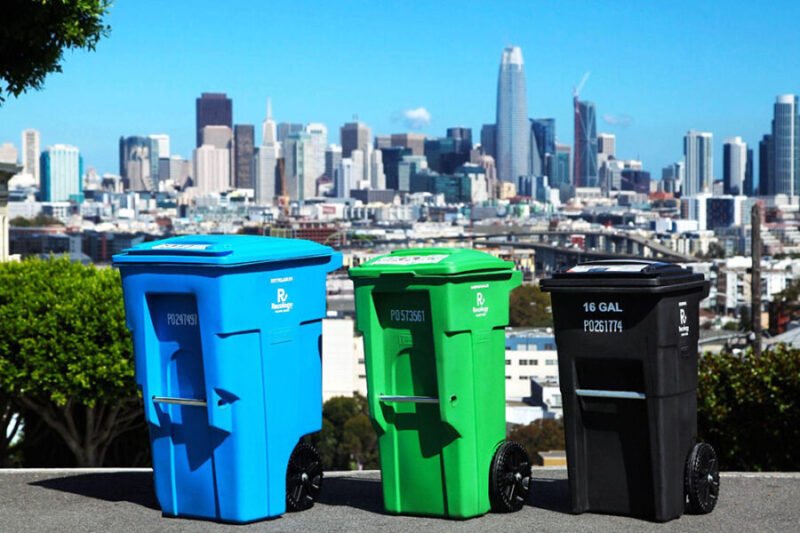By promoting recycling, reducing greenhouse gas emissions from landfills, and encouraging sustainable disposal practices, waste management performs a critical role in preventing climate change. Methane emissions, a strong greenhouse gas that greatly helps cause global warming, are caused by improper waste management. Carbon footprints can be reduced by putting in place efficient disposal of waste methods, such as composting and waste-to-energy techniques. Furthermore, useful materials are not squandered thanks to proper garbage collection and manufacturing, which lessens the need to extract raw resources. Choosing to lease a Skip Hire Locally can help municipalities manage their waste more effectively by promoting environmentally responsible waste disposal.
Lowering Emissions of Greenhouse Gases
Companies that manage waste need to reduce greenhouse gas emissions because this practice strongly affects climate change. Methane produced from organic material decomposition in cemeteries because it acts as a greenhouse gas that remains 25 times stronger than carbon dioxide during a century. Two proven waste management approaches called anaerobic digestion and composting help reduce the release of carbon emissions together with methane emissions.
Recovering Energy from Waste
Energy recovery stands as an effective modern technique to generate power through waste instead of petroleum and coal systems. The garbage separation process through this method leads to emission reduction while simultaneously creating usable energy resources including heat and power. The approach benefits the nation through two main effects by increasing clean energy network involvement and reducing landfill disposal, which lowers greenhouse gas emissions.
Cutting Down on Overconsumption
It might be challenging to avoid overconsumption, particularly when it comes to waste from your clients. However, what about as a company? You might discover you regularly produce a lot of waste from your daily routine, such as empty lunch hall food packaging, paper from torn documents that could have been stored online, or shrinkage that you are unable to use efficiently. Analyse the garbage you generate and identify areas where you can reduce it. Improved kitchen facilities that allow employees to bring homemade meals in reusable Tupperware or a paperless environment are two possible answers.
Encouragement of Sustainable Landfill Methods
Traditional waste disposal sites cause environmental contamination as they produce greenhouse gas methane. The process of methane capture technology builds energy from landfill gas (LFG) as a part of sustainable landfill waste management. Energy production through renewable sources and decreased environmental methane emissions make waste dumps a favorable approach for waste disposal.
Promoting Composting to Lessen the Effects of Organic Waste
Composting serves as an effective technique to handle organic matter by diminishing methane releases from landfills. Through composting we create improved soil fertility while accumulating carbon on higher levels by transforming organic matter into valuable humus additions. Keeping food and garden waste away from dumpster waste bins serves two essential purposes – it reduces climate change while supporting environmentally sustainable food production.
Using Methane Gas to Produce Biofuel
There will undoubtedly be some rubbish that ends up in a landfill. This does not, however, imply that changes in the climate will follow. Rather, some locations have mechanisms set up to convert landfill methane into biofuel. Although capturing debris before it enters a garbage dump is usually preferable and more effective since it reduces released gas and other types of harmful emissions, using landfill methane as biofuel will still lessen its effects.
Reducing Deforestation by Recycling Paper
Playing a significant role in forest destruction and carbon pollution exists from the entire tree supply chain of harvesting to processing and eventual shipping operations. Forest carbon sinks endure protection through paper reprocessing because it diminishes forest wood pulp requirements. Recycling paper waste minimizes carbon emissions from paper production operations while the environment remains safe because of the recycling process.
Reducing the Carbon Impact of Plastic Pollution
Plastic waste introduces environmental contamination that accelerates climate change because industrial production of plastic relies heavily on carbon-based processes. Destined plastic waste releases harmful substances while deteriorating in the environment. Effective plastic waste management through recycling and minimisation techniques helps lower carbon footprints throughout plastic product production and garbage disposal.
Emissions are reduced by e-waste management.
Engineering substantial emissions of carbon dioxide requires extensive processing to recover desirable metals that exist within electronic waste materials. Proper e-waste recycling recaptures gold, silver, and copper materials, thereby reducing the need to extract fresh mineral resources. E-waste disposal ensures safer conditions for the environment while minimizing the carbon pollution from electronic production.
Final words
Effective waste management stands as a key element for fighting climate change effort. The practice of waste management reduces environmental impacts through recycling processes while utilizing waste-to-energy technologies alongside sound landfill management and greenhouse gas emission reduction methods.








